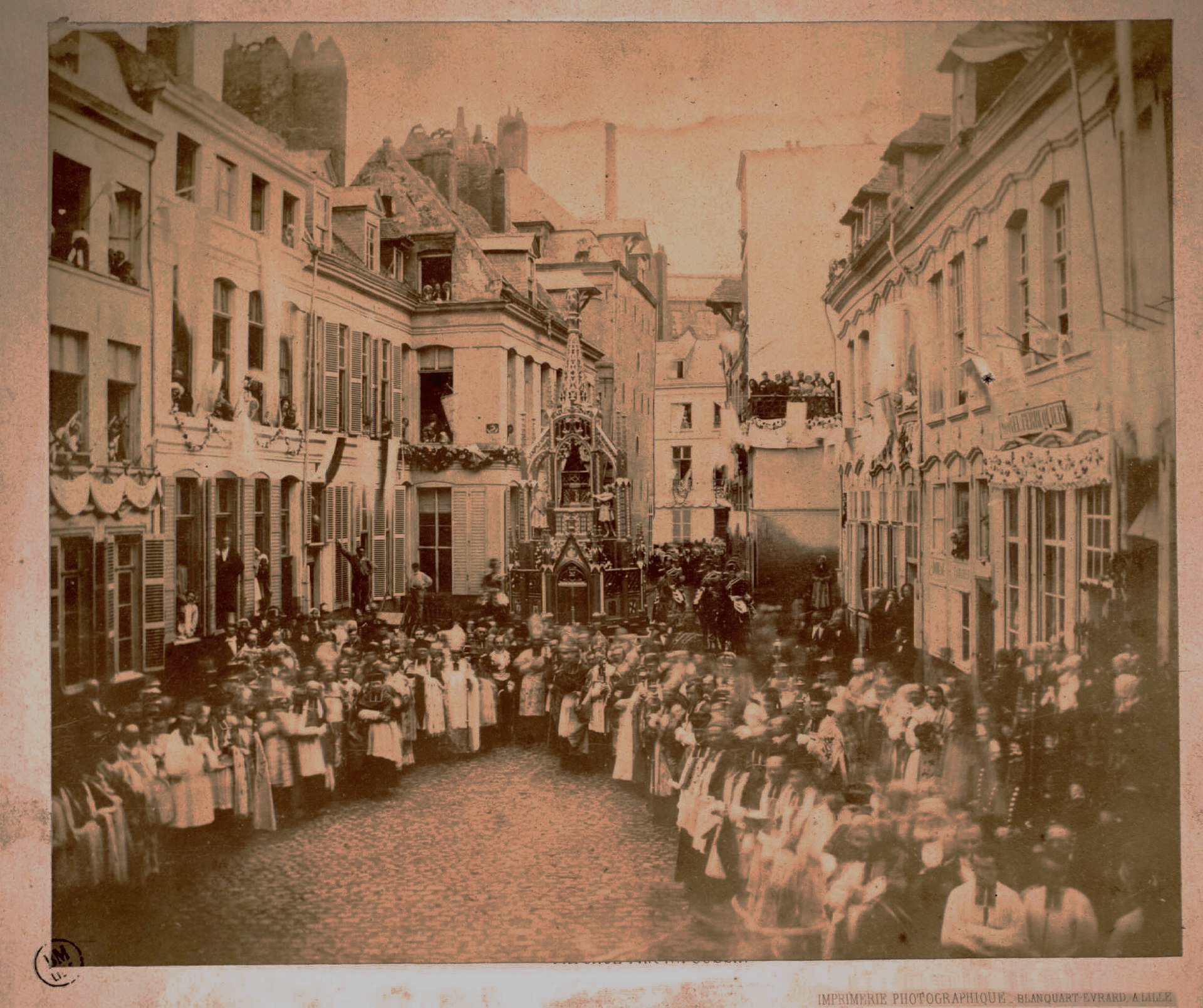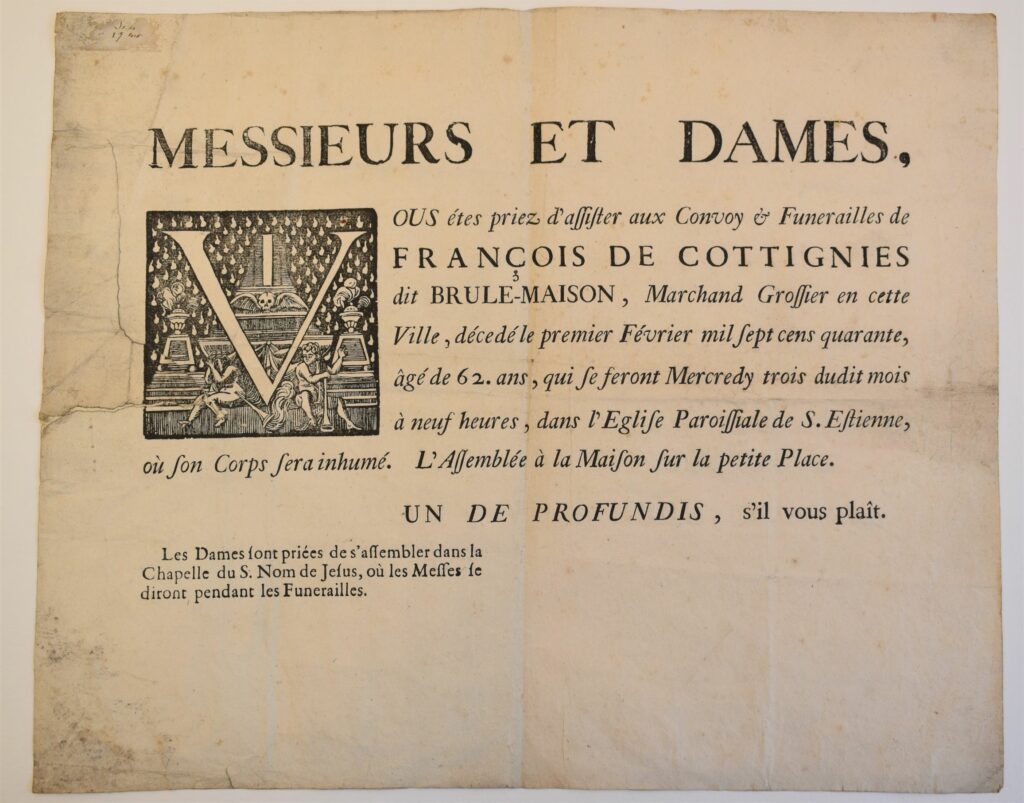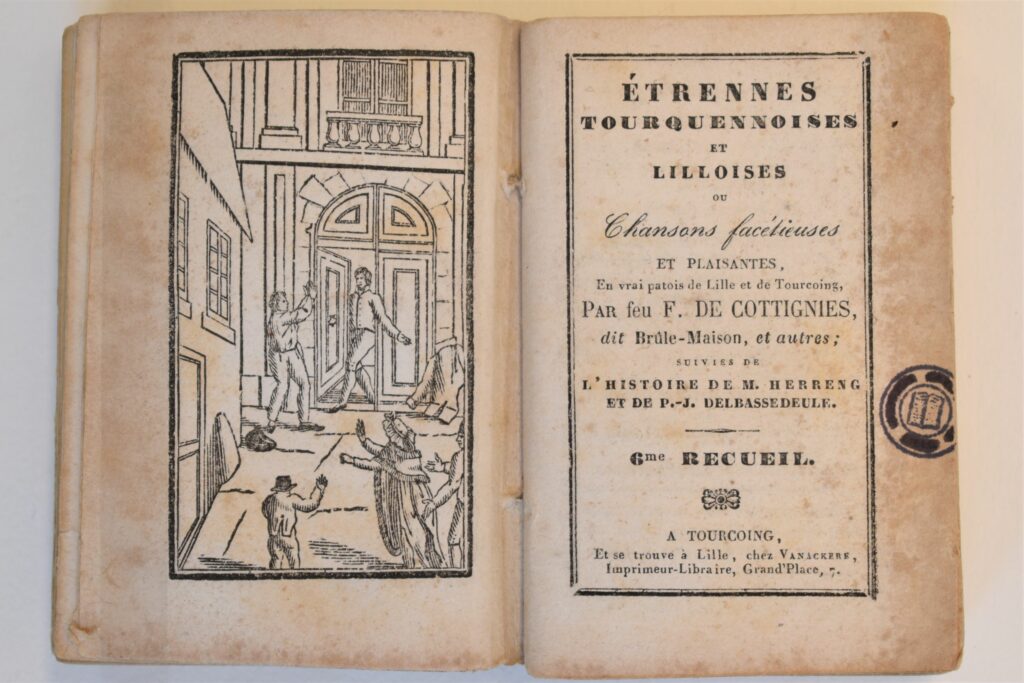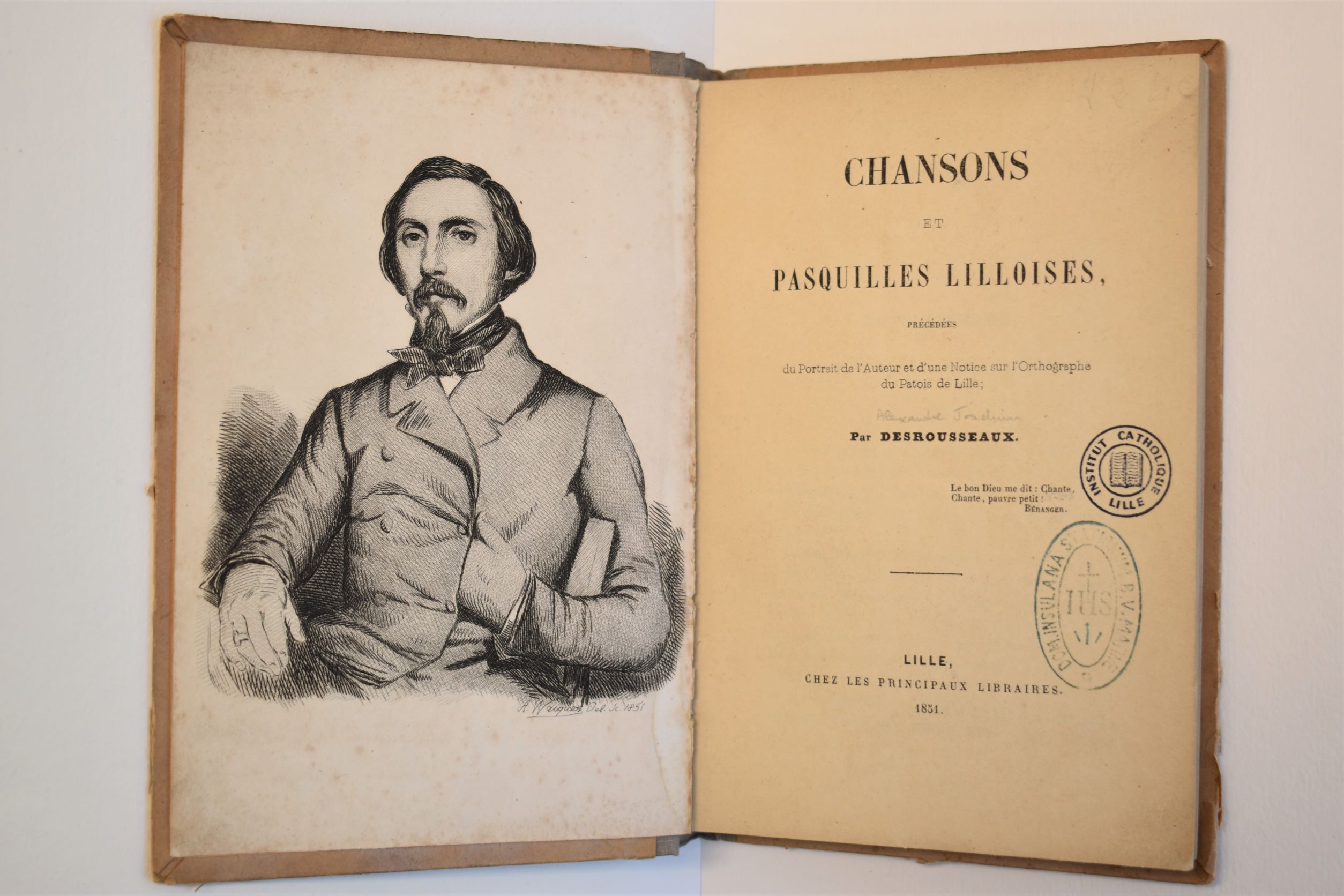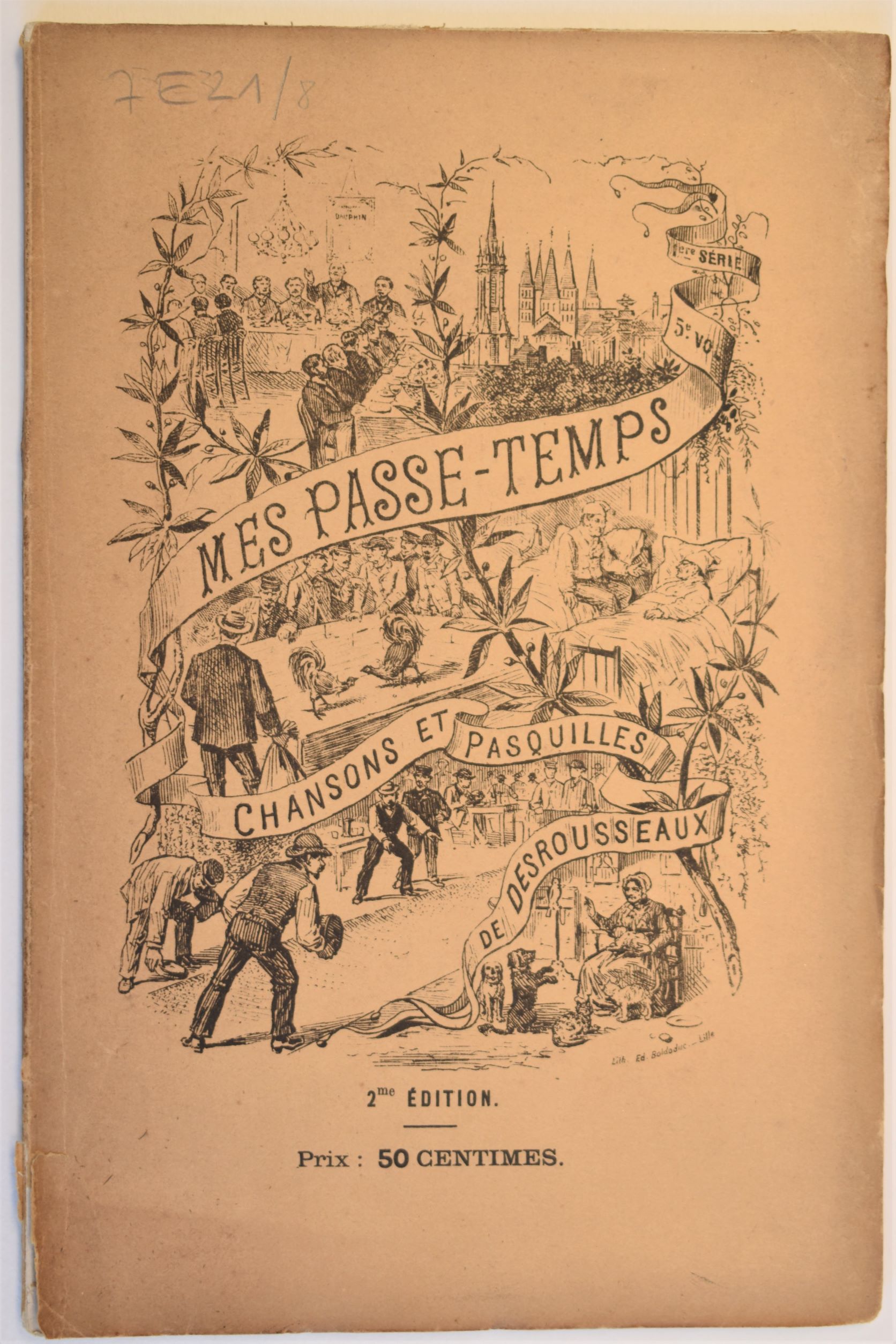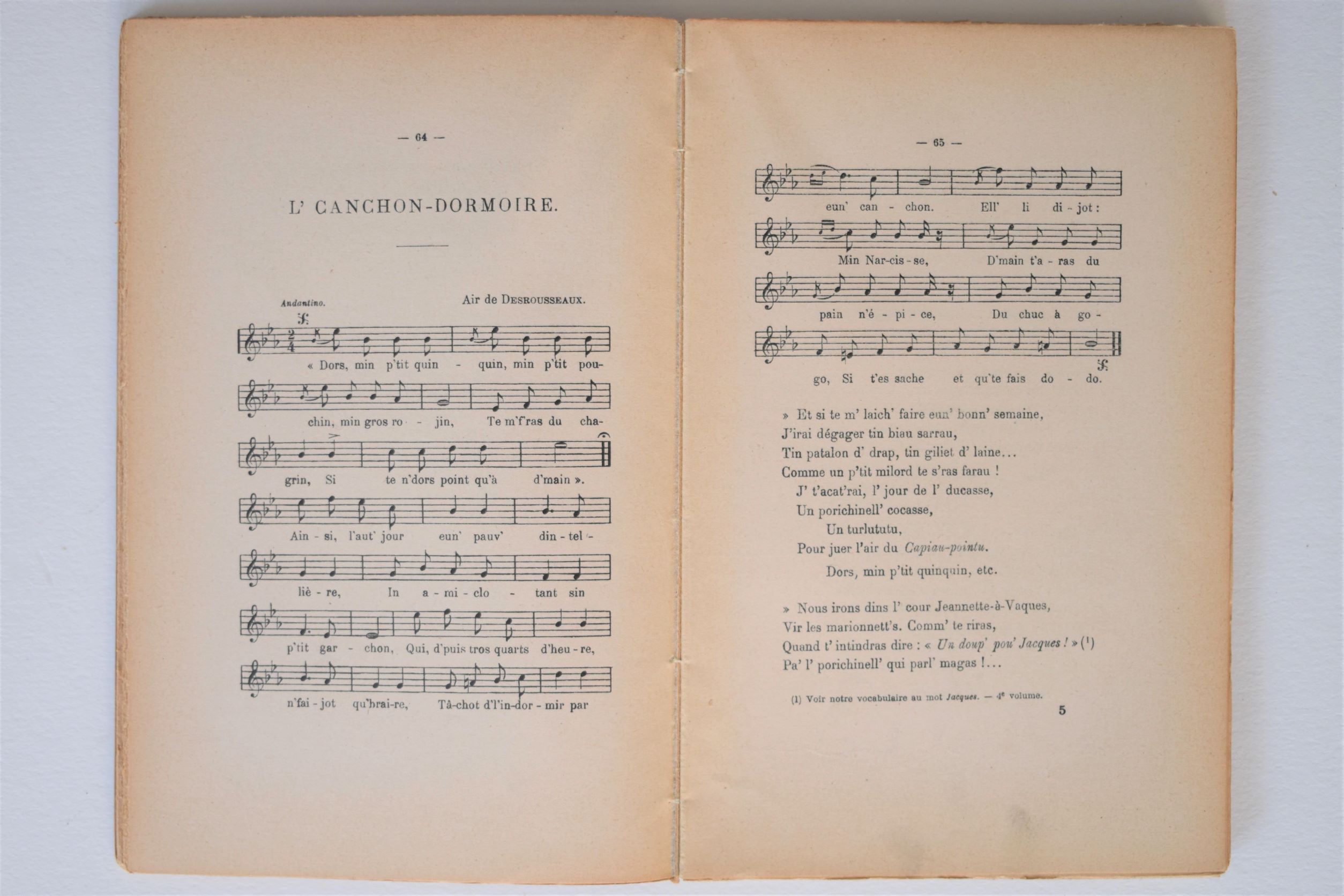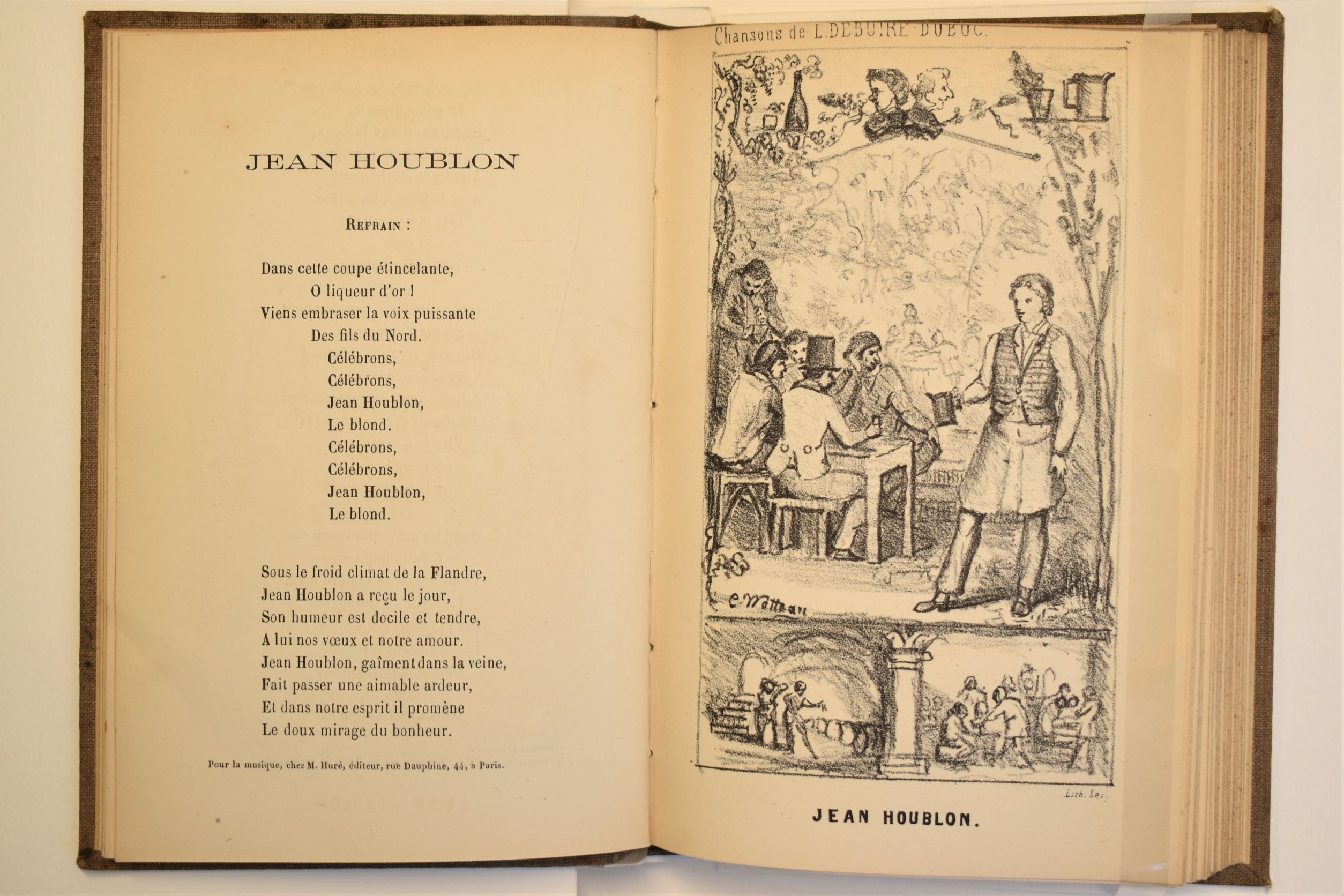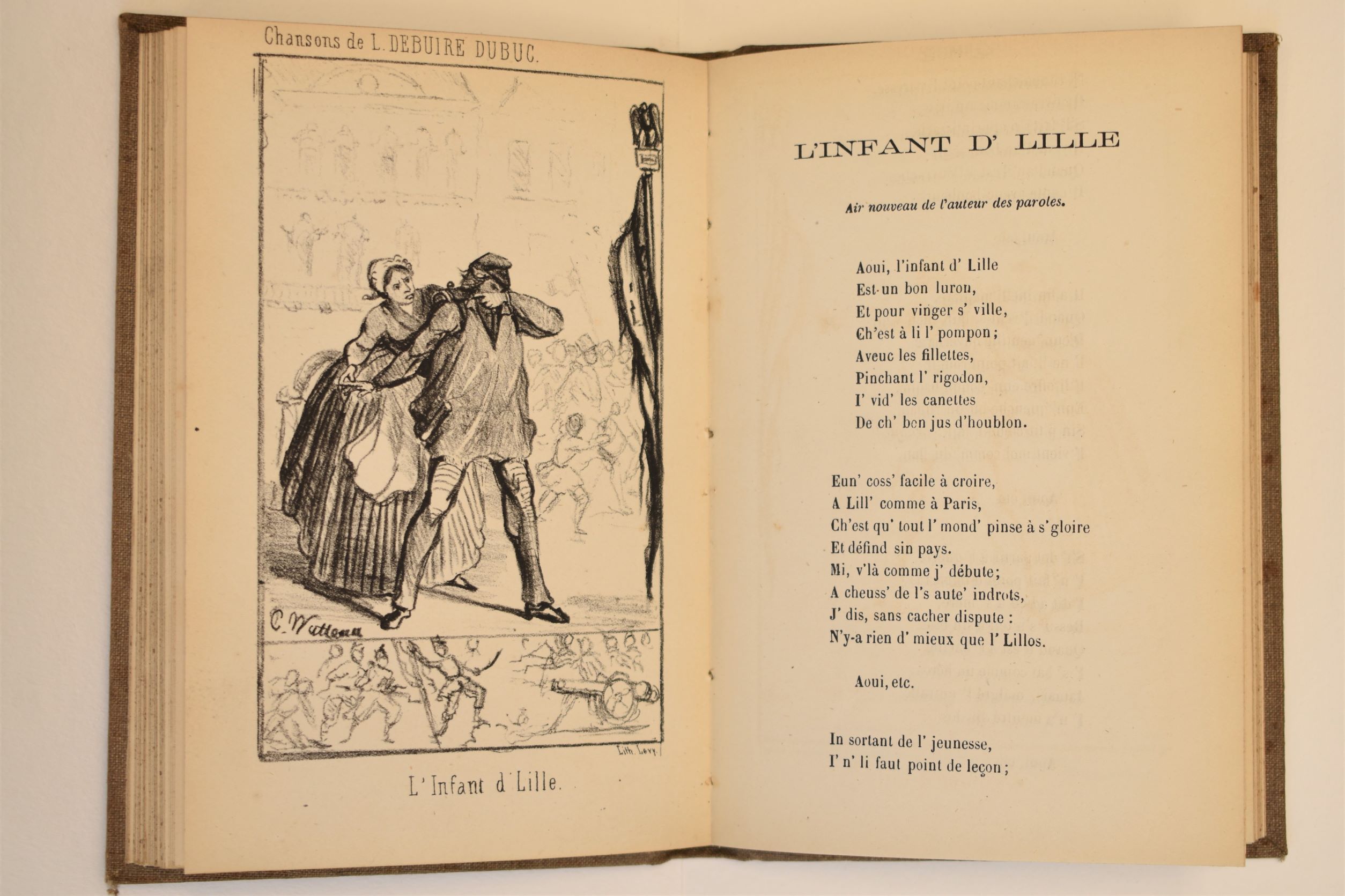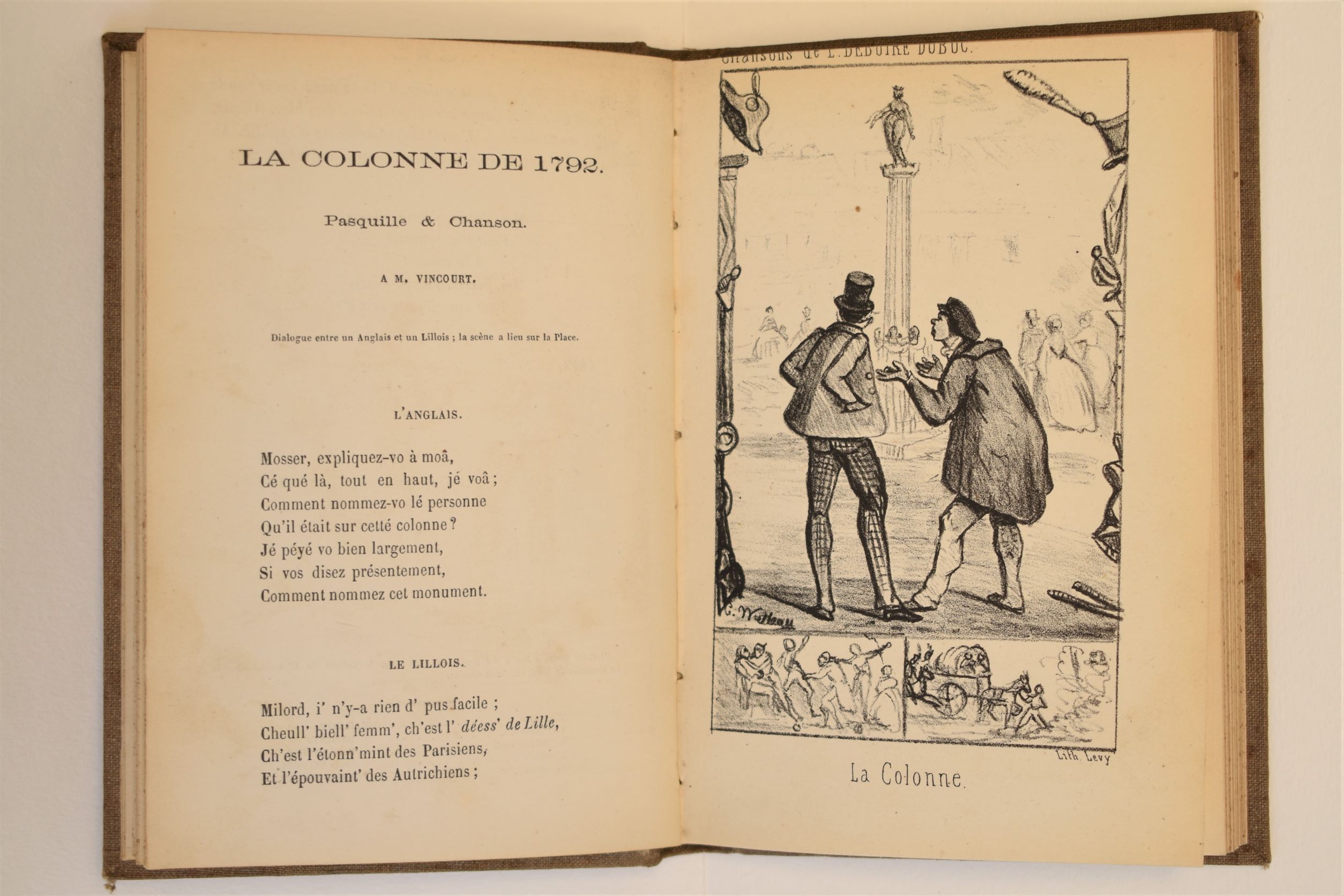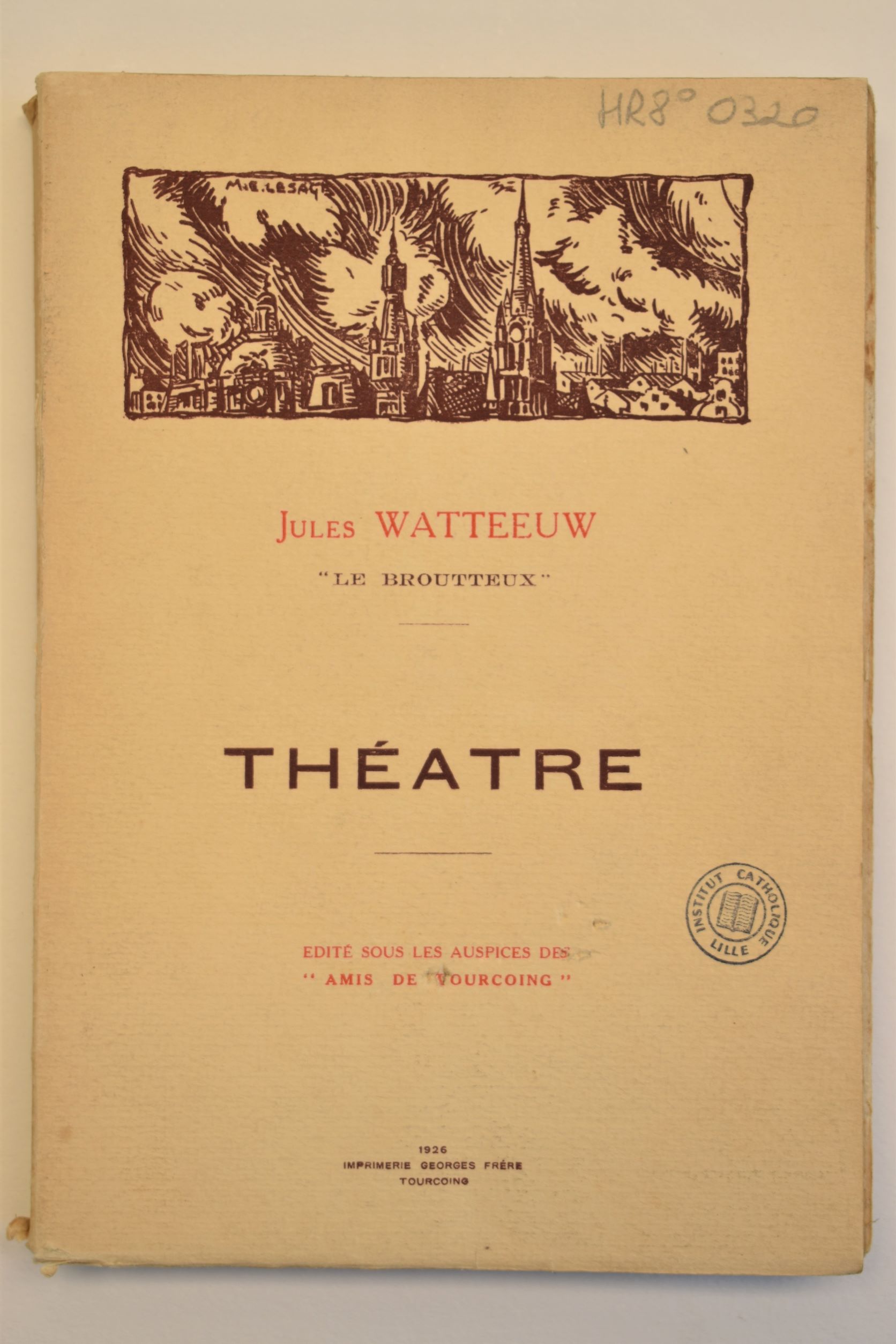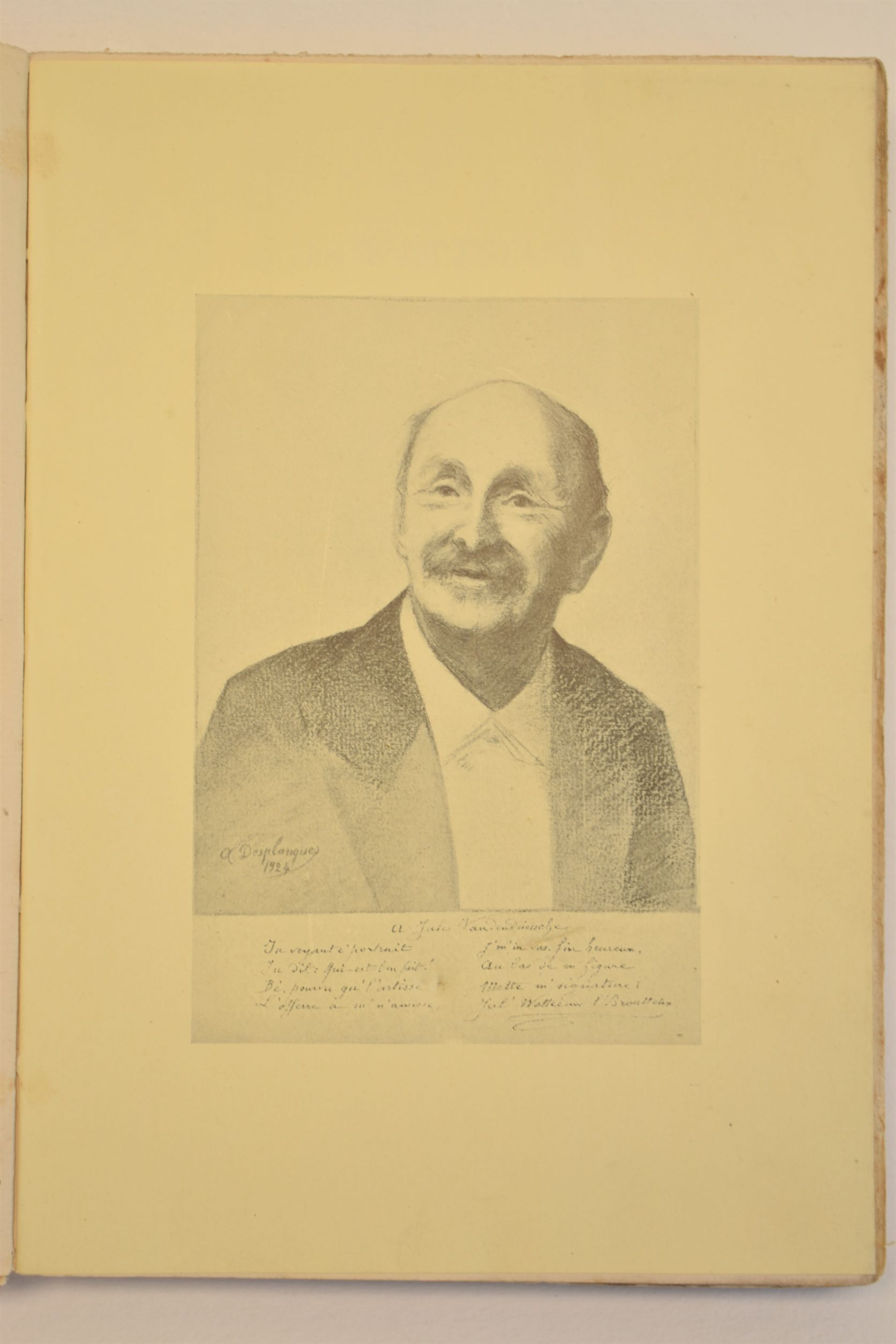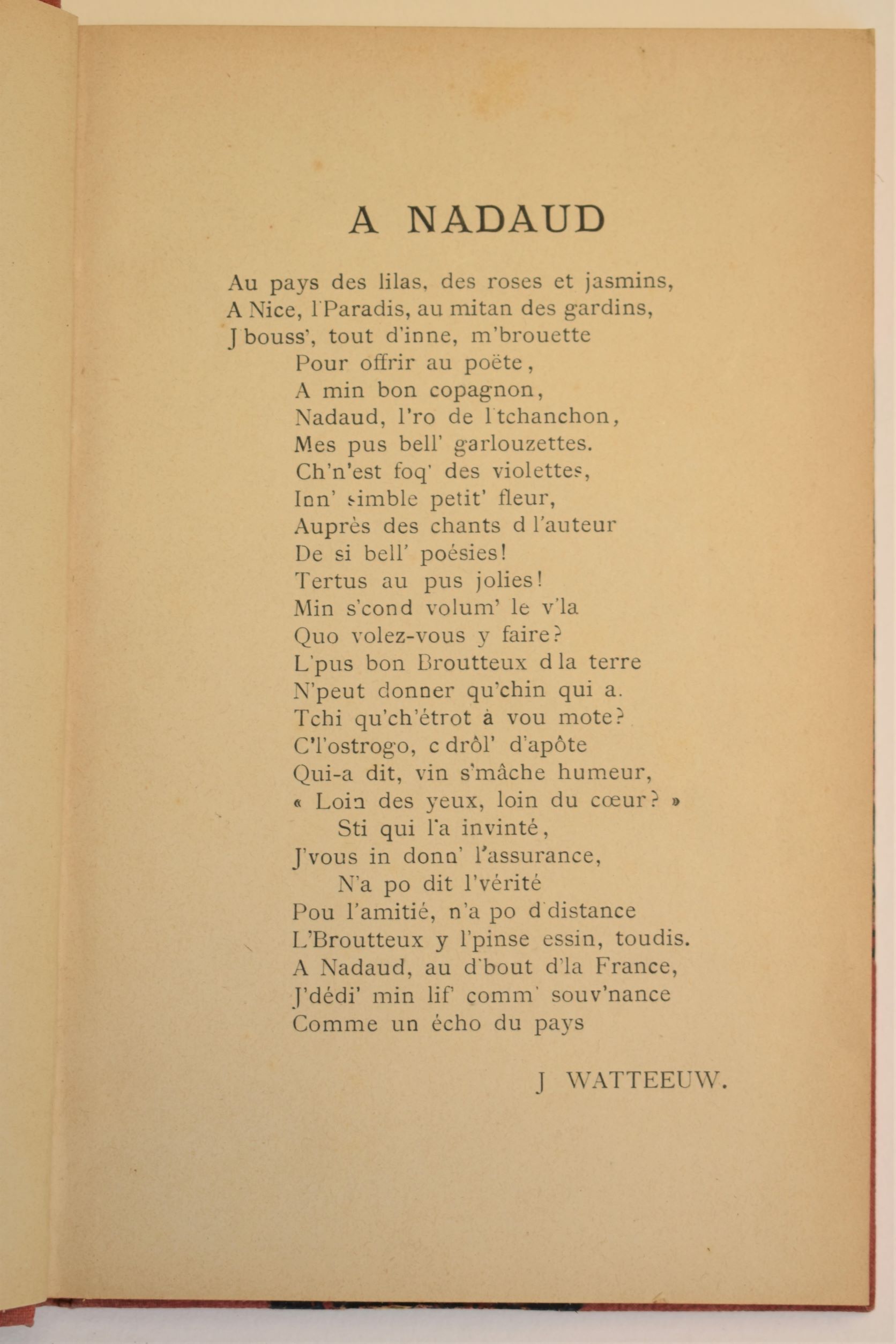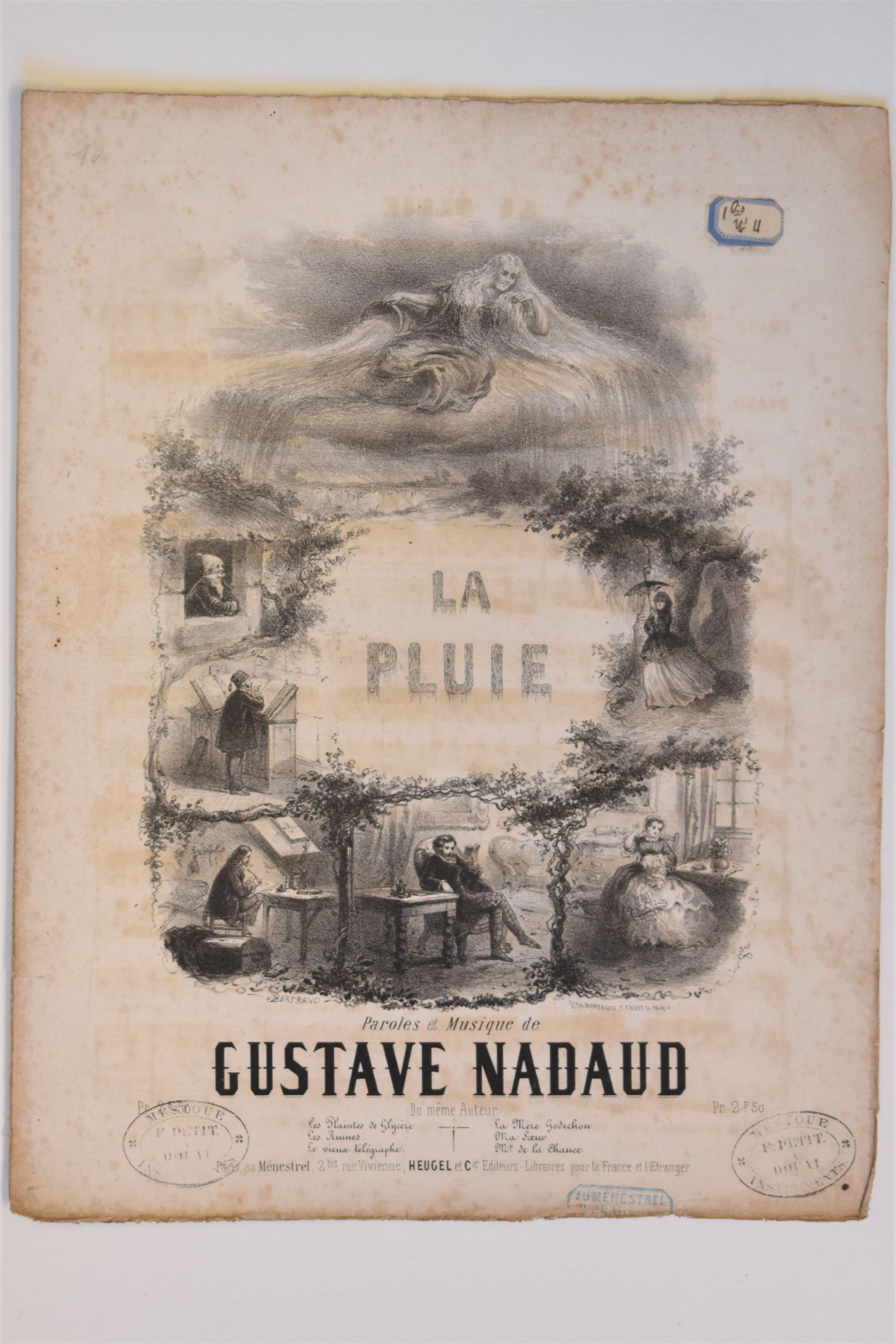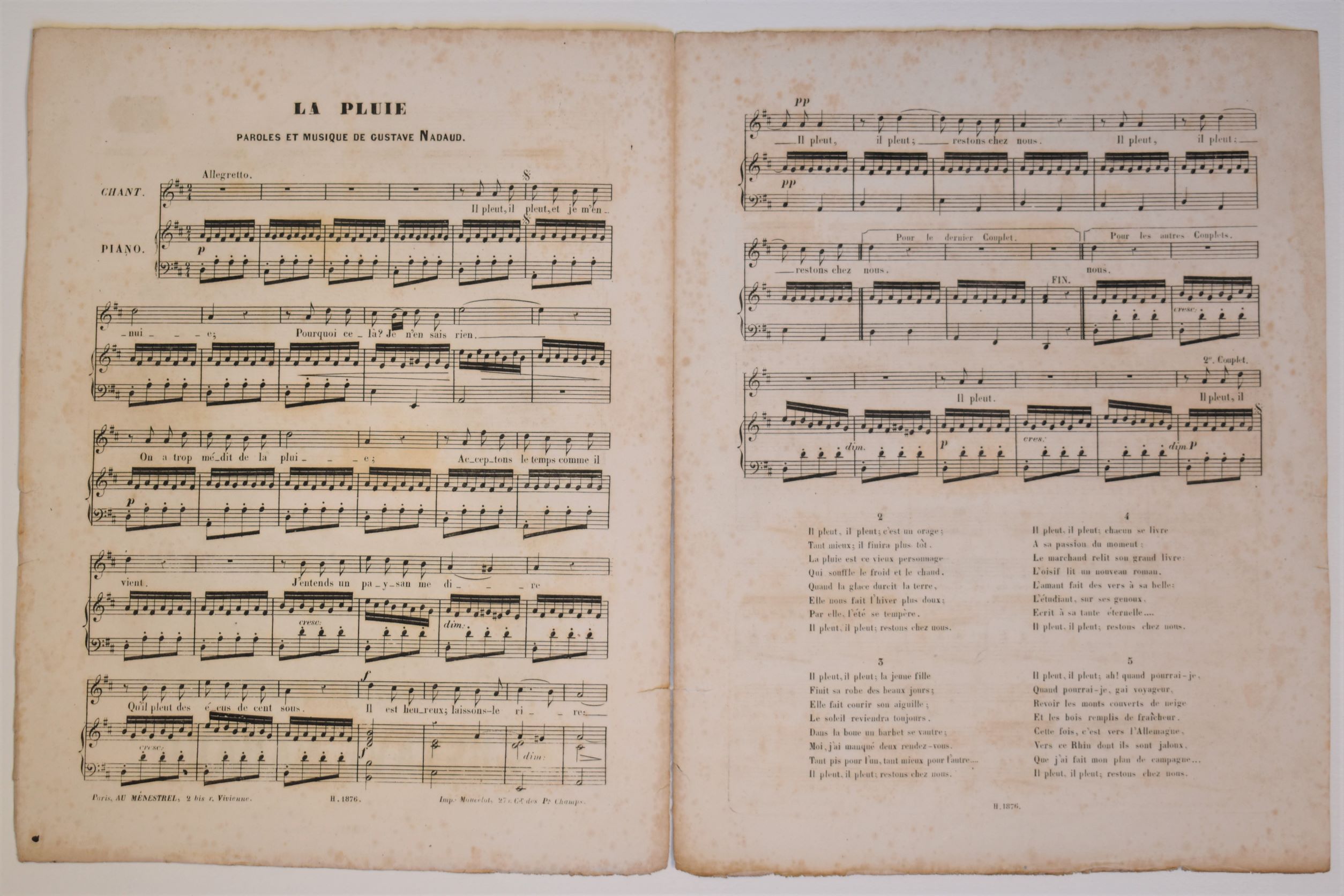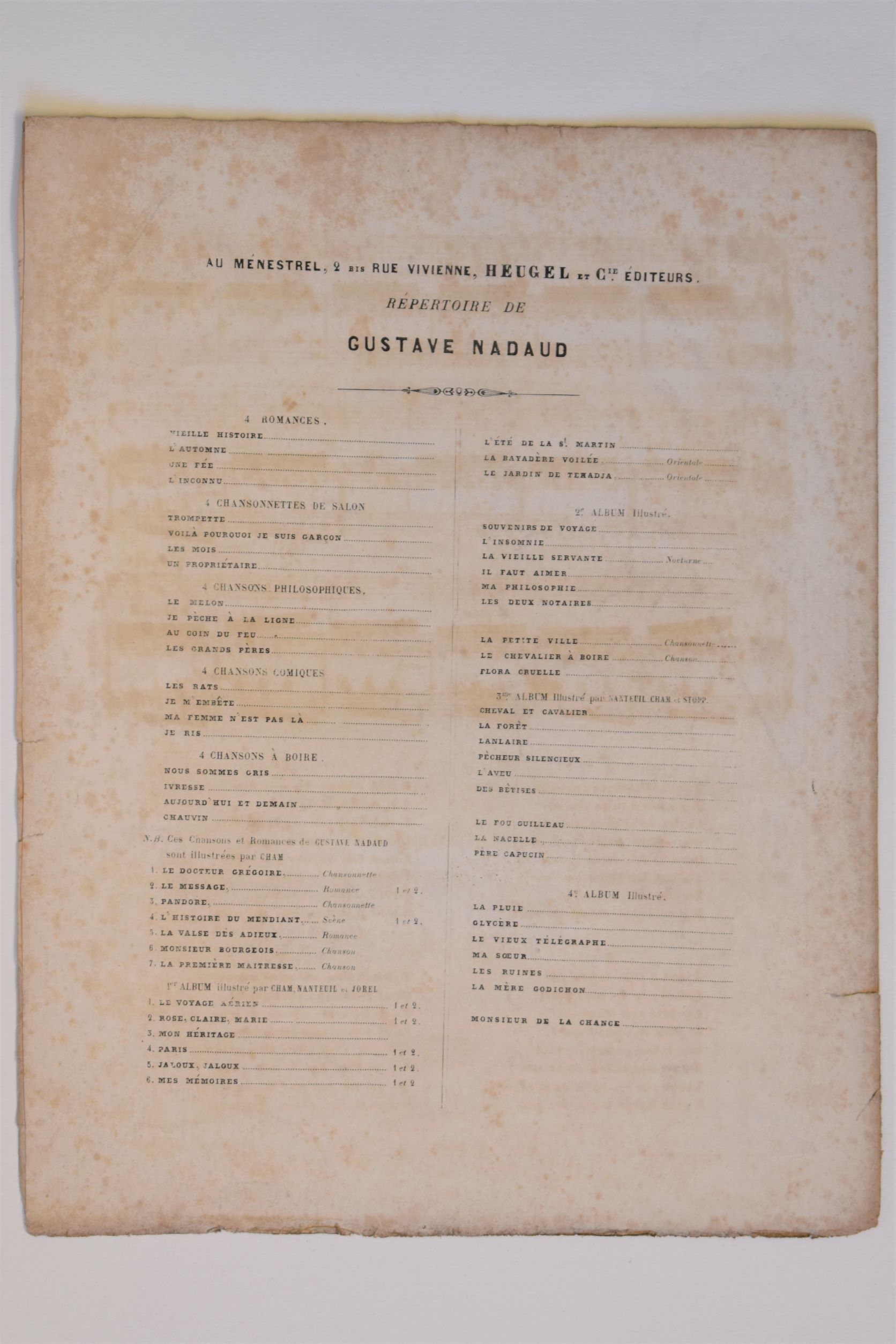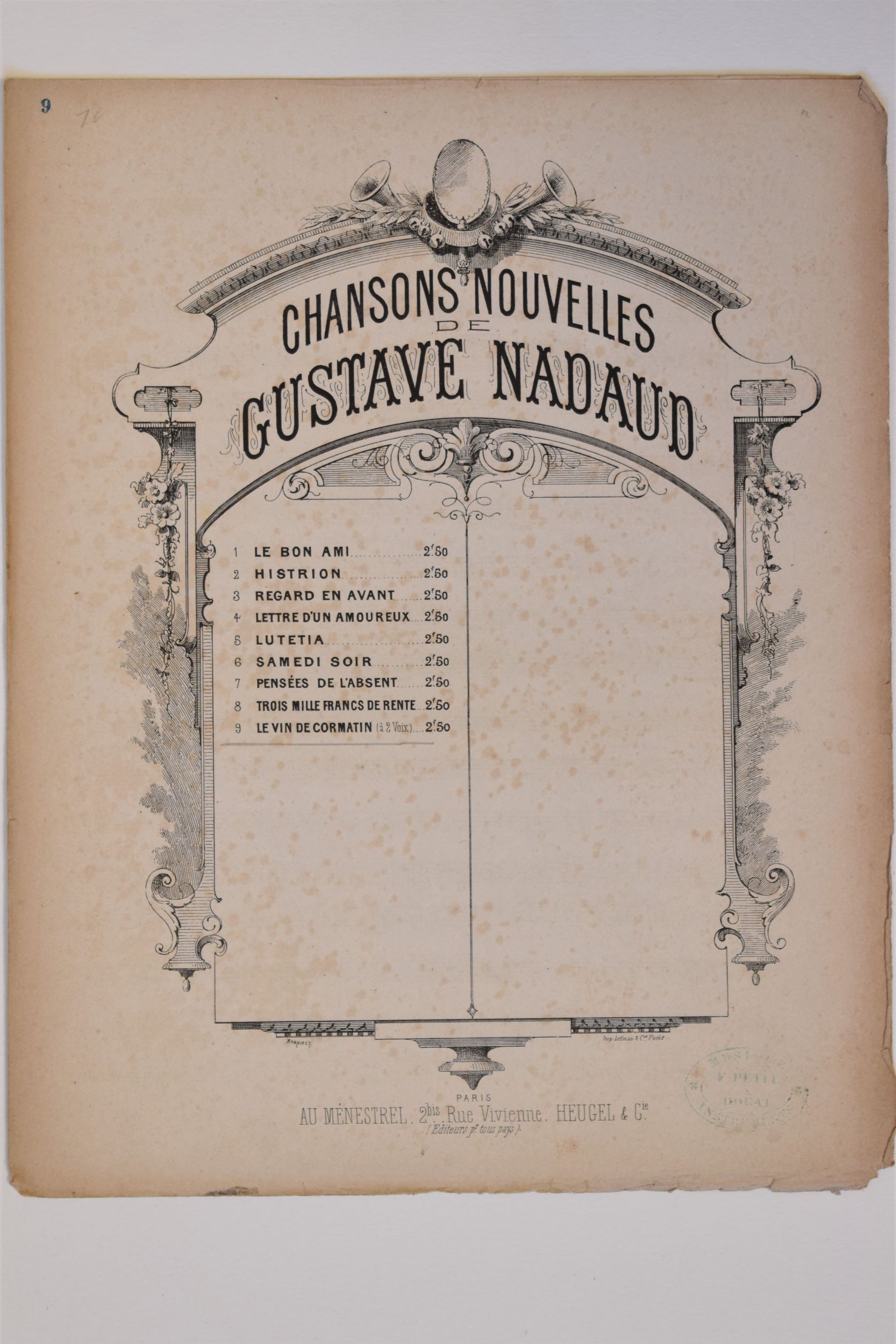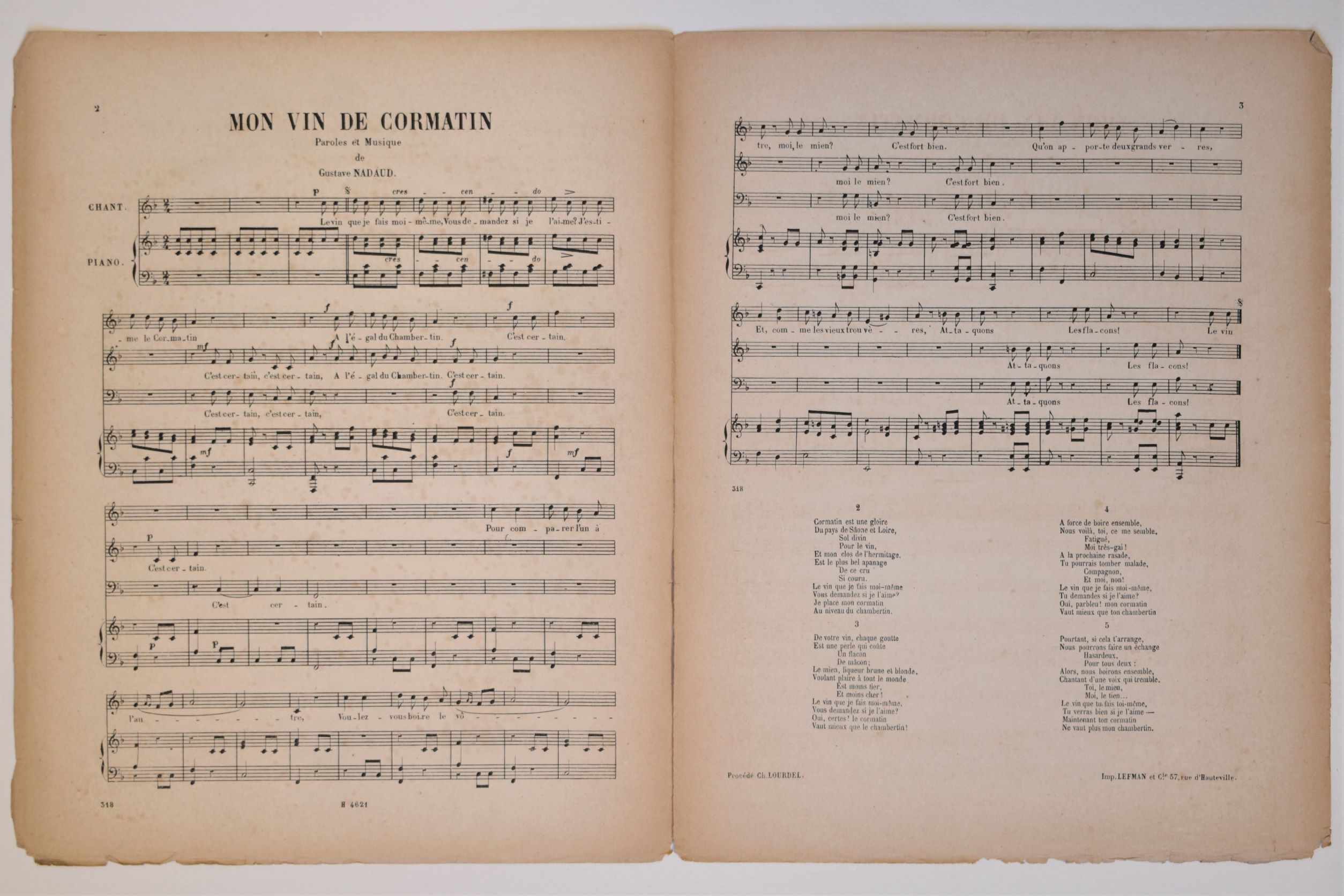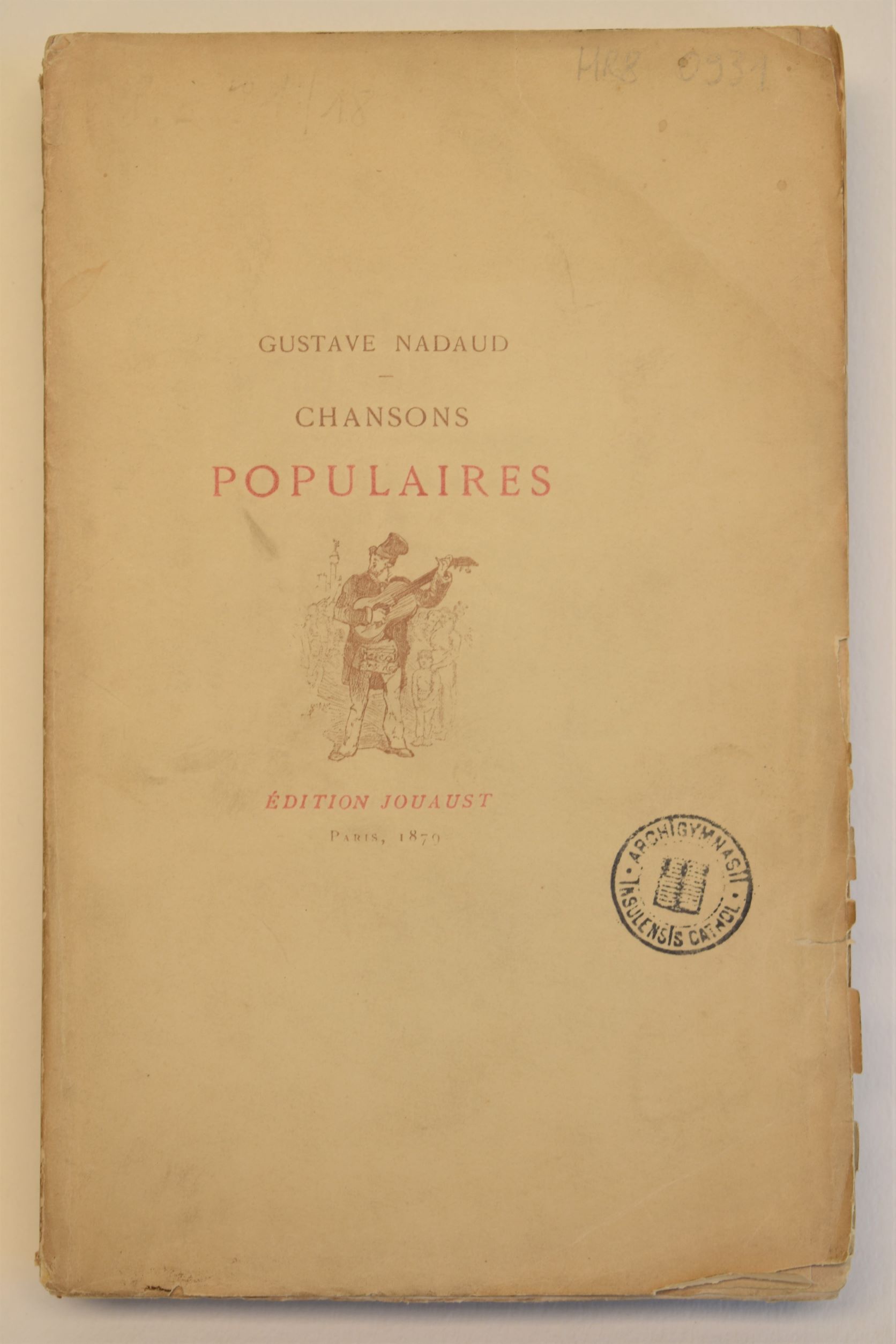François Cottignies, better known as Brûle Maison (1678-1740), did not get published in his lifetime. Instead his songs had been written on unbound leaflets, as was common at the time. Only at the beginning of the 19th century did printer Vanackere from Lille publish those songs under the title “Etrennes Turquennoises”.
Alexandre Desrousseaux was born in 1820 in the working-class neighbourhood of Saint Sauveur, Lille. His parents worked in textile factories. In 1838, during Mid-Lent, the young man wrote three songs that he sang dressed as the “Song Merchant” during the parade. Those were the first three songs of many, his most famous one being the Canchon Dormoire better known as “P’tit Quinquin” in 1853.
Frontispiece portrait of Desrousseaux, 1851 (Chansons et Pasquillles, 8E29/16), cover of Mes passe-temps : Chansons et Pasquilles, 1886 (7E21/8)
Louis Debuire du Buc was the son of two merchants from Lille. In order to fit more into his working-class character, he gave himself nickames such as Bruneau l’fileu or Bilou. However, he spent his entire life in the shadow of Desrousseaux’s glory.
Debuire du Buc, Chansons. Œuvres complètes : Chansons en français et Chansons lilloises, 1861 (HR12 0080, HR12 0007)
Jules Watteeuw (1849-1947), also known as “Le Broutteux”, was one of the most famous people from Tourcoing. He became so famous that the inhabitants from Tourcoing bought him a house in a street named after him. He was a poet and patois-speaking journalist, but he also wrote plays in French. He wrote some song collections, like the “Pasquilles du Broutteux”. He would sometimes pay tribute to his peers, for example here to Gustave Nadeau, as was customary.
Watteeuw’s portrait in Théâtre, 1926 (HR8 0320). Tribute to Gustave Nadaud in Chansons, Fables & Pasquilles, 1891 (HR12 0350)
Gustave Nadeau was born in 1820 in Roubaix in a middle-class family. Contrary to many other song writers or public amusers, he wrote his texts in French and became famous nationwide. He died in Paris in 1893.
Nadaud, Song leaflets for La Pluie and Mon vin de Cormatin, missing date (Archives) and Chansons populaires, 1879 (HR8 0931)
